Chia seeds have gained immense popularity in recent years, often hailed as a superfood due to their impressive nutritional profile. This article delves into the caloric content of chia seeds and their potential benefits for weight management. By understanding these aspects, you can make informed dietary choices that align with your health goals.
Chia seeds are small, black or white seeds derived from the Salvia hispanica plant, native to Mexico and Guatemala. These tiny seeds are a powerhouse of nutrients, packed with fiber, omega-3 fatty acids, and essential minerals like calcium, magnesium, and phosphorus. Their ability to absorb water and form a gel-like consistency makes them versatile in various recipes.
In terms of caloric content, chia seeds contain approximately 138 calories per ounce (28 grams). This relatively low-calorie count, combined with their high nutrient density, allows them to fit seamlessly into a balanced diet. Understanding the caloric value of chia seeds is essential for those aiming to manage their weight effectively.
Chia seeds are not only low in calories but also rich in several key nutrients:
- Fiber: Approximately 10 grams per ounce, promoting digestive health.
- Protein: About 4 grams per ounce, aiding in muscle repair and growth.
- Healthy Fats: Rich in omega-3 fatty acids, supporting heart health.
This combination of nutrients contributes to their reputation as a valuable addition to a healthy diet.
Chia seeds can play a significant role in weight management due to their high fiber content. Fiber promotes a feeling of fullness, which can lead to reduced overall calorie intake. Studies have shown that incorporating fiber-rich foods like chia seeds into your diet can enhance satiety and help control hunger.
Fiber-rich foods are known for their ability to regulate hunger and stabilize blood sugar levels. Chia seeds, with their unique gel-forming property when soaked in liquid, can help slow digestion and prolong feelings of fullness. This section explores the science behind fiber and its impact on weight management.
The gel-like consistency of chia seeds when hydrated can create a significant feeling of fullness. This property can assist in appetite regulation, making it easier to resist unhealthy snacks between meals. By incorporating chia seeds into your meals, you may find it easier to stick to your dietary goals.
Adding chia seeds to your meals is simple and versatile. Here are some practical tips:
- Add them to smoothies for a nutritional boost.
- Use them in puddings by mixing with milk or plant-based alternatives.
- Sprinkle on salads or yogurt for added texture.
There are numerous ways to enjoy chia seeds:
- Chia Pudding: Mix chia seeds with milk and let it sit overnight.
- Chia Smoothie: Blend chia seeds with fruits and yogurt for a refreshing drink.
- Baked Goods: Incorporate chia seeds into muffins or bread for added nutrition.
The recommended daily intake of chia seeds is about 1 to 2 ounces (28 to 56 grams). This amount allows you to reap the benefits without overconsumption, which can lead to digestive discomfort. It’s crucial to listen to your body and adjust your intake accordingly.
While chia seeds are generally safe for most people, some may experience side effects, particularly if not adequately hydrated. It’s essential to consume them with plenty of water to prevent potential digestive issues.
Some individuals may experience digestive discomfort when consuming chia seeds, especially if they do not drink enough fluids. This section highlights the importance of proper hydration when incorporating chia seeds into your diet.
Certain populations, such as those with specific allergies or medical conditions, might need to limit their intake of chia seeds. It’s important to consult with a healthcare professional if you have concerns about incorporating them into your diet.

What Are Chia Seeds?
Chia seeds, derived from the Salvia hispanica plant, are tiny yet incredibly nutrient-dense seeds that have gained immense popularity as a superfood. These seeds are not only small in size but also packed with essential nutrients that contribute significantly to a balanced diet. Their versatile nature allows them to be incorporated into a variety of dishes, making them a favorite among health enthusiasts.
One of the most appealing aspects of chia seeds is their rich nutritional profile. They are an excellent source of omega-3 fatty acids, which are crucial for heart health and cognitive function. Additionally, chia seeds are loaded with dietary fiber, which aids in digestion and promotes a feeling of fullness. This high fiber content makes them particularly beneficial for those looking to manage their weight.
Chia seeds are also a good source of essential minerals such as calcium, magnesium, and phosphorus. These minerals play vital roles in bone health, energy production, and overall bodily functions. Moreover, chia seeds contain antioxidants that help combat oxidative stress and inflammation, further enhancing their status as a superfood.
In terms of calorie content, chia seeds provide approximately 138 calories per ounce (28 grams). This relatively low calorie count, combined with their high nutrient density, makes them an excellent addition to a balanced diet. Understanding the caloric value of chia seeds is essential for those who are conscious of their daily intake and looking to maintain a healthy weight.
To fully appreciate the benefits of chia seeds, it is important to understand how they can be incorporated into your diet. Here are some practical ways to enjoy chia seeds:
- Smoothies: Add a tablespoon of chia seeds to your favorite smoothie for an extra boost of nutrients.
- Chia Pudding: Mix chia seeds with almond milk and let them soak overnight for a delicious and healthy breakfast option.
- Baking: Incorporate chia seeds into baked goods like muffins or bread for added texture and nutrition.
- Salads: Sprinkle chia seeds over salads for an added crunch and nutritional boost.
When consuming chia seeds, it is recommended to start with a small amount, such as one tablespoon per day, and gradually increase as your body adjusts. Staying hydrated is crucial, as chia seeds can absorb significant amounts of liquid and expand in your stomach, promoting a feeling of fullness.
In summary, chia seeds are a powerhouse of nutrition, offering a wide array of health benefits. Their versatility and nutrient density make them an excellent choice for anyone looking to enhance their diet. Whether you’re adding them to smoothies, baking, or salads, incorporating chia seeds into your meals can support your overall health and well-being.
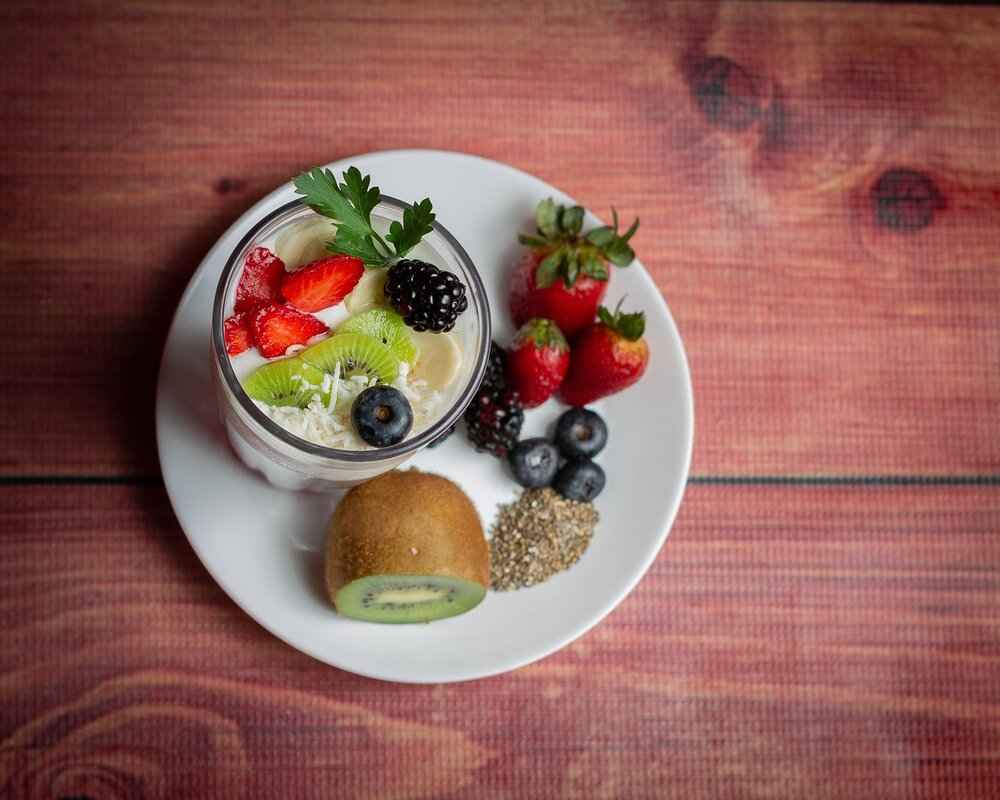
How Many Calories Are in Chia Seeds?
Chia seeds have gained immense popularity in recent years, often hailed as a superfood due to their rich nutritional profile. One of the key aspects that many health-conscious individuals consider is the calorie content of these tiny seeds. Understanding how many calories are in chia seeds can significantly impact your dietary choices, especially if you’re aiming for weight management.
Chia seeds contain approximately 138 calories per ounce (28 grams). This calorie count is relatively moderate, making them a suitable addition to various diets. However, it’s essential to consider how these calories fit into your overall daily intake. For instance, if you’re following a 1,500-calorie diet, including chia seeds can provide beneficial nutrients without overwhelming your calorie budget.
In addition to calories, chia seeds offer a wealth of nutrients. They are rich in fiber, providing about 11 grams per ounce. This high fiber content not only contributes to their caloric value but also plays a crucial role in promoting feelings of fullness, which can help in managing weight.
Furthermore, chia seeds are an excellent source of omega-3 fatty acids, protein, and essential minerals such as calcium and magnesium. These nutrients work synergistically to support overall health, making chia seeds a valuable component of a balanced diet.
When incorporating chia seeds into your meals, being aware of their calorie content is vital for maintaining a balanced diet. It helps in making informed decisions about portion sizes and overall caloric intake. For example, adding a tablespoon of chia seeds to your smoothie or yogurt can enhance its nutritional value without significantly increasing the calorie count.
Moreover, understanding the caloric content of chia seeds aids in planning meals that are both nutritious and satisfying. This is particularly beneficial for individuals looking to lose weight or maintain a healthy weight, as it encourages mindful eating habits.
To effectively manage your calorie intake from chia seeds, consider the following tips:
- Use a kitchen scale: Weighing your chia seeds can provide accurate measurements. Remember, one ounce is about 28 grams.
- Incorporate them gradually: Start with a smaller amount, such as a teaspoon, and gradually increase to find the right balance for your diet.
- Combine with low-calorie foods: Pair chia seeds with fruits, vegetables, or yogurt to enhance their nutritional impact without adding excessive calories.
By being mindful of the calories in chia seeds and how they fit into your overall dietary plan, you can enjoy their numerous health benefits while effectively managing your weight.
Chia seeds, with their 138 calories per ounce, present a nutritious option for those looking to enhance their diet. Their combination of fiber, protein, and healthy fats makes them a versatile ingredient in various meals. By understanding their caloric content and incorporating them thoughtfully, you can enjoy the benefits of chia seeds while maintaining a balanced diet.
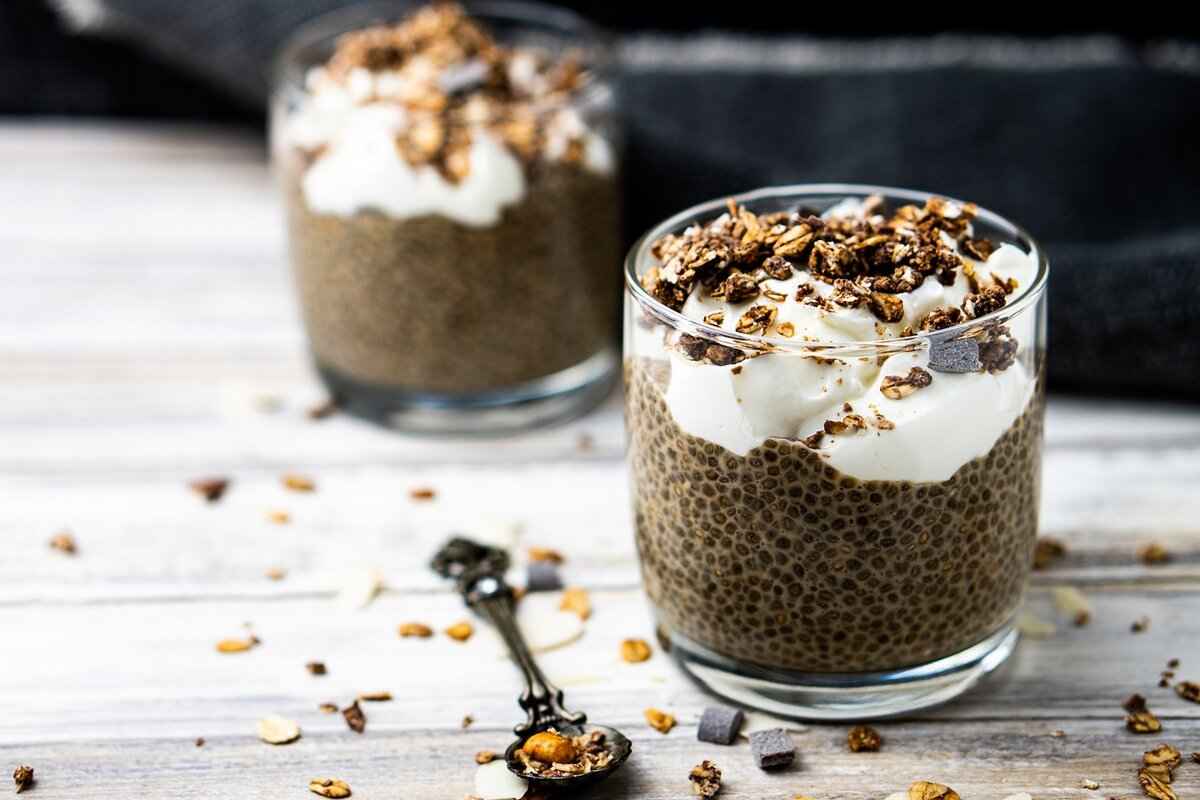
What Nutrients Do Chia Seeds Provide?
Chia seeds have gained significant attention in recent years, primarily due to their impressive nutritional profile. These tiny seeds, derived from the Salvia hispanica plant, are not only low in calories but also packed with essential nutrients that contribute to overall health. Understanding the nutritional benefits of chia seeds is crucial for anyone looking to enhance their diet.
Aside from their relatively low calorie content, chia seeds are abundant in fiber, protein, and healthy fats. These nutrients play a vital role in their reputation as a superfood and a powerful addition to a healthy diet.
- Fiber: Chia seeds are rich in dietary fiber, providing approximately 11 grams per ounce. This high fiber content aids in digestion, promotes a feeling of fullness, and helps regulate blood sugar levels.
- Protein: With about 4 grams of protein per ounce, chia seeds are an excellent plant-based protein source. This makes them a fantastic option for vegetarians and vegans looking to increase their protein intake.
- Healthy Fats: Chia seeds are an excellent source of omega-3 fatty acids, particularly alpha-linolenic acid (ALA). These healthy fats are known for their anti-inflammatory properties and support heart health.
- Minerals: Chia seeds are also rich in essential minerals such as calcium, magnesium, and phosphorus, which are crucial for bone health and various metabolic processes.
The combination of these nutrients not only enhances the nutritional value of chia seeds but also contributes to various health benefits. For example, the high fiber content can help in weight management by promoting satiety, while the omega-3 fatty acids support cardiovascular health.
The unique nutritional profile of chia seeds makes them beneficial for various aspects of health. Their antioxidant properties help combat oxidative stress, while the fiber aids in digestive health. Additionally, the protein content can support muscle repair and growth, making chia seeds a versatile addition to any diet.
Integrating chia seeds into your diet can be both easy and enjoyable. Here are some practical tips:
- Add to Smoothies: Blend chia seeds into your favorite smoothie for an extra nutritional boost.
- Chia Pudding: Mix chia seeds with almond milk and let them sit overnight for a delicious and nutritious breakfast.
- Baking: Incorporate chia seeds into baked goods like muffins and bread for added texture and nutrition.
In summary, chia seeds are a nutrient-dense food that can significantly enhance your diet. With their high fiber, protein, and healthy fat content, they offer numerous health benefits and can be easily incorporated into various meals. Whether you’re looking to improve your overall health or manage your weight, chia seeds are a fantastic option to consider.
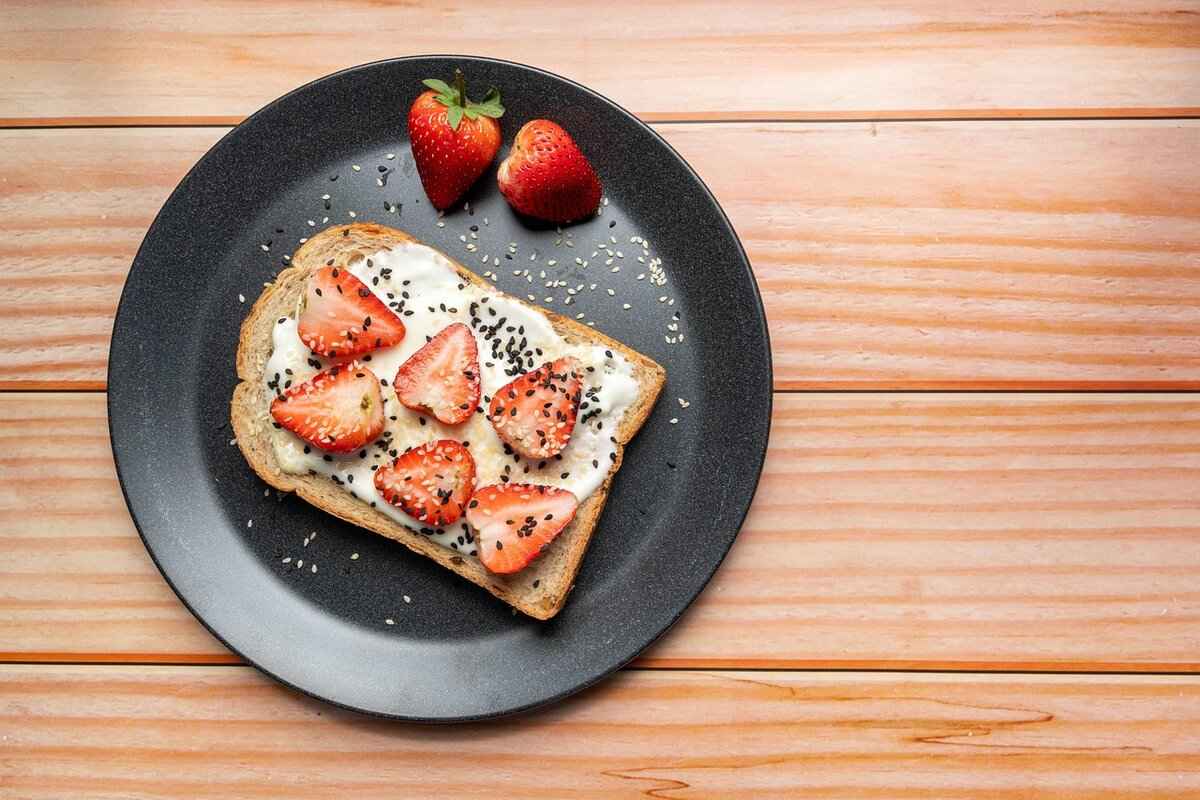
How Do Chia Seeds Aid in Weight Management?
Chia seeds are increasingly recognized as a superfood that can play a significant role in weight management. Their unique composition and health benefits make them a popular choice for those looking to maintain or lose weight. In this section, we will explore the various ways in which chia seeds can assist in weight management.
One of the most notable features of chia seeds is their high fiber content. With approximately 10 grams of fiber per ounce, chia seeds can help promote a feeling of fullness. This sensation of satiety can lead to reduced cravings and lower overall calorie intake. When consumed, chia seeds absorb liquid and expand in the stomach, creating a gel-like substance that takes up space and delays gastric emptying. This mechanism can be particularly beneficial for individuals looking to control their appetite.
Another way chia seeds contribute to weight management is through their ability to stabilize blood sugar levels. The soluble fiber in chia seeds slows down the digestion of carbohydrates, preventing spikes in blood sugar that can lead to hunger and cravings. By maintaining stable blood sugar levels, chia seeds can help individuals avoid the energy crashes that often lead to unhealthy snacking.
Chia seeds are also a good source of plant-based protein, containing about 4 grams per ounce. Protein is essential for muscle maintenance, especially during weight loss. Including protein-rich foods like chia seeds in your diet can help preserve muscle mass while promoting fat loss. This balance is crucial for achieving a healthy body composition and ensuring that weight loss comes primarily from fat rather than muscle.
Despite their numerous health benefits, chia seeds are relatively low in calories, containing around 138 calories per ounce. This nutrient density means that you can consume chia seeds without significantly increasing your daily caloric intake. Incorporating them into meals can enhance the nutritional profile without compromising weight management goals.
- Chia Pudding: Mix chia seeds with almond milk or yogurt and let them soak overnight for a delicious breakfast or snack.
- Smoothies: Add a tablespoon of chia seeds to your smoothies for an extra boost of fiber and protein.
- Baking: Incorporate chia seeds into baked goods like muffins or bread for added texture and nutrition.
- Salads: Sprinkle chia seeds on salads for a crunchy element and additional nutrients.
Incorporating chia seeds into your meals can be simple and versatile, making it easier to reap their benefits for weight management. By understanding how chia seeds work in the body, you can make informed dietary choices that align with your health goals.
In summary, chia seeds offer a range of benefits that can aid in weight management, from promoting satiety and stabilizing blood sugar levels to providing essential nutrients without excessive calories. By including these tiny seeds in your diet, you can enhance your weight management efforts while enjoying their delicious taste and numerous health benefits.
What Role Does Fiber Play in Weight Loss?
Fiber plays a crucial role in weight loss and overall health. It is a type of carbohydrate that the body cannot digest, which means it passes through the digestive system relatively intact. This unique characteristic is what makes fiber particularly beneficial for those looking to manage their weight effectively.
One of the most significant benefits of fiber is its ability to promote a feeling of fullness or satiety. When fiber-rich foods, such as chia seeds, are consumed, they absorb water and expand in the stomach. This expansion creates a sense of fullness, which can help reduce overall calorie intake. Studies have shown that individuals who consume high-fiber diets tend to eat fewer calories throughout the day, leading to weight loss over time.
Another important aspect of fiber is its role in stabilizing blood sugar levels. Foods high in fiber slow down the absorption of sugar into the bloodstream, preventing spikes and crashes in blood sugar levels. This stabilization can help control cravings and reduce the likelihood of overeating, making it an essential component of any weight management strategy.
There are two main types of fiber: soluble and insoluble. Soluble fiber dissolves in water and can help lower cholesterol and regulate blood sugar levels. Foods like chia seeds, oats, and legumes are excellent sources of soluble fiber. On the other hand, insoluble fiber adds bulk to the stool and aids in digestion, helping to prevent constipation. Whole grains, vegetables, and nuts are rich in insoluble fiber. A balanced intake of both types of fiber can enhance weight loss efforts.
The recommended daily intake of fiber is about 25 grams for women and 38 grams for men. However, most people fall short of these recommendations. Incorporating fiber-rich foods like chia seeds, fruits, vegetables, and whole grains into your diet can help meet these needs. For example, just two tablespoons of chia seeds provide about 10 grams of fiber, making them an easy addition to smoothies, yogurt, or oatmeal.
- Start Slowly: If you’re not used to consuming a lot of fiber, increase your intake gradually to avoid digestive discomfort.
- Hydrate: Drink plenty of water when increasing fiber intake to help the fiber work effectively in your digestive system.
- Mix It Up: Include a variety of fiber sources in your diet to ensure you get both soluble and insoluble fiber.
- Snack Wisely: Choose snacks that are high in fiber, such as fruits, vegetables, or whole-grain options.
In conclusion, fiber is an essential component of a healthy diet that can significantly aid in weight loss and management. By promoting satiety, stabilizing blood sugar levels, and supporting digestive health, fiber-rich foods like chia seeds can be powerful allies in your weight management journey. Incorporating more fiber into your meals can lead to better dietary choices and improved overall health.
Can Chia Seeds Help Control Appetite?
Chia seeds have gained popularity as a superfood due to their numerous health benefits, particularly in the realm of weight management. One of the most intriguing aspects of these tiny seeds is their ability to help control appetite. This article delves into how chia seeds can assist in regulating hunger and promoting a sense of fullness.
When chia seeds are soaked in liquid, they absorb water and expand to form a gel-like substance. This unique property is attributed to their high fiber content, particularly soluble fiber, which can hold up to 10-12 times its weight in water. This expansion in the stomach can lead to a feeling of fullness or satiety, which may help reduce overall calorie intake.
- Fiber Content: Chia seeds are packed with fiber, with about 11 grams per ounce. Fiber slows down the digestion process, allowing for a gradual release of energy and preventing spikes in blood sugar levels.
- Hydration: The gel-like consistency not only fills the stomach but also keeps it hydrated. This can help curb cravings that often arise from dehydration rather than actual hunger.
- Nutrient-Rich: In addition to fiber, chia seeds are rich in protein and healthy fats, which further contribute to feelings of fullness and satisfaction after meals.
Several studies have investigated the effects of chia seeds on appetite regulation. Research indicates that incorporating chia seeds into meals can lead to a significant reduction in hunger and an increase in feelings of fullness. Participants in these studies often reported lower calorie intake throughout the day, suggesting that chia seeds could be an effective tool for those looking to manage their weight.
Incorporating chia seeds into your diet can be simple and effective. Here are some practical tips:
- Add to Smoothies: Blend chia seeds into your smoothies for added texture and a boost in fiber.
- Make Chia Pudding: Combine chia seeds with almond milk or yogurt and let them soak overnight for a delicious and filling breakfast.
- Sprinkle on Salads: Add chia seeds to salads for extra crunch and nutritional benefits.
While chia seeds can be beneficial for appetite control, it is essential to consume them in moderation. Overconsumption can lead to digestive issues, especially if not accompanied by adequate water intake. It is advisable to gradually introduce chia seeds into your diet and monitor how your body responds.
In conclusion, chia seeds are a versatile and nutritious addition to any diet, particularly for those looking to manage their appetite and weight. Their unique gel-like consistency, combined with their high fiber and nutrient content, makes them a valuable ally in the quest for effective weight management. By understanding how to incorporate chia seeds into your meals, you can harness their benefits and promote a healthier lifestyle.
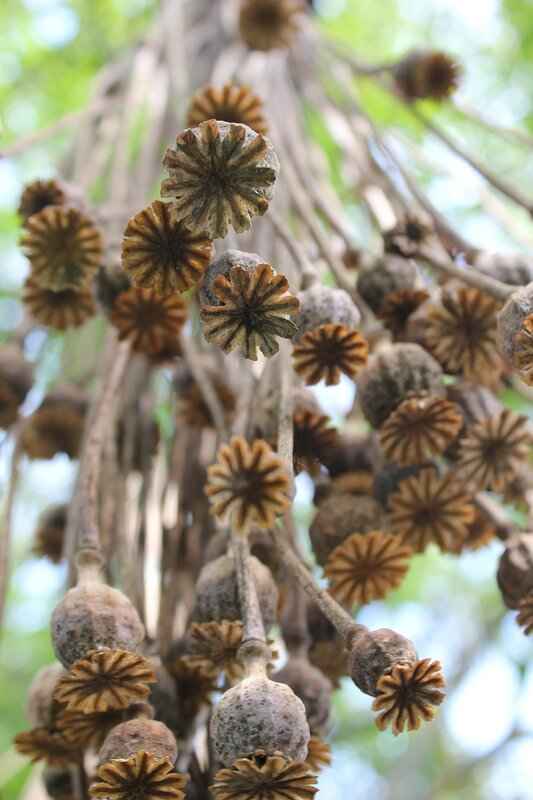
How to Incorporate Chia Seeds into Your Diet?
Incorporating chia seeds into your daily meals can be both easy and beneficial for your health. These tiny seeds are not only versatile but also packed with nutrients that can enhance your diet. Here are some practical tips to help you add chia seeds to your meals effortlessly.
Chia seeds are a powerhouse of nutrients, including fiber, omega-3 fatty acids, and protein. Their ability to absorb liquid and form a gel-like consistency makes them an excellent ingredient for various dishes. This property can help you feel full, making them a great ally in weight management.
- Breakfast Boost: Add a tablespoon of chia seeds to your morning oatmeal or yogurt. They can enhance the texture and increase the nutritional value.
- Smoothies: Blend chia seeds into your favorite smoothie. They will add thickness and a nutritional punch without altering the flavor.
- Baking: Incorporate chia seeds into baked goods like muffins, bread, or pancakes. They can replace eggs in vegan recipes when mixed with water, serving as a binding agent.
- Salads: Sprinkle chia seeds on salads for added crunch and nutrition. They pair well with a variety of dressings and toppings.
- Chia Pudding: Mix chia seeds with your choice of milk or plant-based milk, sweeten to taste, and let it sit overnight in the fridge. This creates a delicious and healthy pudding that can be enjoyed as a snack or dessert.
Here are a couple of easy recipes to try:
1. Chia Seed Pudding: - 1/4 cup chia seeds - 1 cup almond milk - 1 tablespoon honey or maple syrup - Mix all ingredients and refrigerate overnight. Top with fruits before serving.2. Chia Seed Smoothie: - 1 banana - 1 cup spinach - 1 tablespoon chia seeds - 1 cup coconut water - Blend until smooth and enjoy!
The recommended daily intake of chia seeds is about 1 to 2 tablespoons. This amount allows you to reap the benefits without overconsumption. Always ensure you drink plenty of water when increasing your fiber intake to avoid digestive discomfort.
To maintain their freshness, store chia seeds in a cool, dry place. An airtight container in the pantry or refrigerator is ideal. This will help preserve their nutritional quality and extend their shelf life.
By following these tips and incorporating chia seeds into your meals, you can enhance your diet with minimal effort. Their versatility allows for a range of culinary applications, making them a valuable addition to any healthy eating plan.
What Are Some Easy Recipes with Chia Seeds?
Chia seeds are incredibly versatile and can be easily incorporated into a variety of dishes. Their unique texture and nutritional benefits make them a popular choice for health enthusiasts. Below are some easy recipes that you can try at home to enjoy the goodness of chia seeds.
This is a simple and delicious recipe that serves as a great breakfast or snack option.
- Ingredients:
- 1/4 cup chia seeds
- 1 cup almond milk (or any milk of choice)
- 1 tablespoon honey or maple syrup
- 1/2 teaspoon vanilla extract
- Fresh fruits and nuts for topping
- Instructions:
- In a bowl, mix the chia seeds, almond milk, honey, and vanilla extract.
- Stir well and let it sit for about 5 minutes.
- Stir again to prevent clumping, then cover and refrigerate for at least 2 hours or overnight.
- Serve chilled, topped with your favorite fruits and nuts.
A refreshing and nutritious smoothie that can be customized to your liking.
- Ingredients:
- 1 tablespoon chia seeds
- 1 banana
- 1 cup spinach or kale
- 1 cup almond milk or yogurt
- 1 tablespoon peanut butter (optional)
- Instructions:
- Add all ingredients into a blender.
- Blend until smooth, adding more liquid if necessary.
- Pour into a glass and enjoy!
These energy bars are perfect for a quick snack on the go.
- Ingredients:
- 1 cup oats
- 1/4 cup chia seeds
- 1/2 cup nut butter
- 1/4 cup honey or maple syrup
- 1/2 cup dried fruits or nuts
- Instructions:
- Preheat your oven to 350°F (175°C).
- In a bowl, mix all the ingredients until well combined.
- Press the mixture into a lined baking dish.
- Bake for 20-25 minutes, then let it cool before cutting into bars.
This is a healthy alternative to traditional jam, packed with flavor and nutrients.
- Ingredients:
- 2 cups fresh or frozen berries
- 2 tablespoons chia seeds
- 1-2 tablespoons honey or sweetener of choice
- Instructions:
- In a saucepan, cook the berries over medium heat until they start to break down.
- Add honey and stir well.
- Remove from heat and stir in chia seeds.
- Let it cool and thicken before storing it in the refrigerator.
These recipes are not only easy to make but also provide an excellent way to incorporate chia seeds into your diet. Whether you prefer sweet or savory, there are endless possibilities to explore with these tiny seeds. Enjoy experimenting with these recipes and discover how chia seeds can enhance your meals!
How Much Chia Seed Should You Consume Daily?
When it comes to incorporating chia seeds into your diet, understanding how much chia seed you should consume daily is essential for maximizing their health benefits while avoiding overconsumption. Chia seeds are packed with nutrients, but moderation is key to ensuring a balanced diet.
The general recommendation for chia seed consumption is about 1 to 2 tablespoons per day, which translates to approximately 15 to 30 grams. This serving size provides a wealth of nutrients without overwhelming your digestive system. Consuming more than this may lead to potential digestive issues due to their high fiber content.
Understanding serving sizes is crucial for several reasons:
- Fiber Content: Chia seeds are high in fiber, with about 10 grams per ounce. Excessive fiber intake can lead to bloating, gas, and other gastrointestinal discomforts.
- Caloric Considerations: Each tablespoon of chia seeds contains around 58 calories. Overconsumption can lead to unwanted weight gain if not accounted for in your daily caloric intake.
- Hydration Needs: Chia seeds absorb water and expand significantly. It’s essential to drink adequate fluids when consuming them to avoid digestive issues.
Several factors can influence how much chia seed you should consume:
- Age and Gender: Nutritional needs vary based on age and gender. Consult with a healthcare provider for personalized recommendations.
- Activity Level: Active individuals may require more nutrients, allowing for a slightly higher intake of chia seeds.
- Dietary Goals: If you are aiming for weight loss, sticking to the lower end of the recommended intake may be beneficial.
Incorporating chia seeds into your diet can be both easy and enjoyable. Here are some practical tips:
- Add to Smoothies: Blend chia seeds into your favorite smoothies for an added nutrient boost.
- Chia Pudding: Mix chia seeds with milk or a milk alternative, let them soak overnight, and enjoy a delicious pudding the next day.
- Baking: Incorporate chia seeds into baked goods like muffins or bread for added texture and nutrition.
It’s important to listen to your body when consuming chia seeds. If you experience any discomfort, consider reducing your intake or adjusting how you consume them. Remember, everyone’s body reacts differently, and what works for one person may not work for another.
In conclusion, while chia seeds offer numerous health benefits, understanding the appropriate daily intake is crucial for enjoying their advantages without negative side effects. Stick to the recommended serving sizes, consider your personal dietary needs, and enjoy the versatile ways to include chia seeds in your meals.
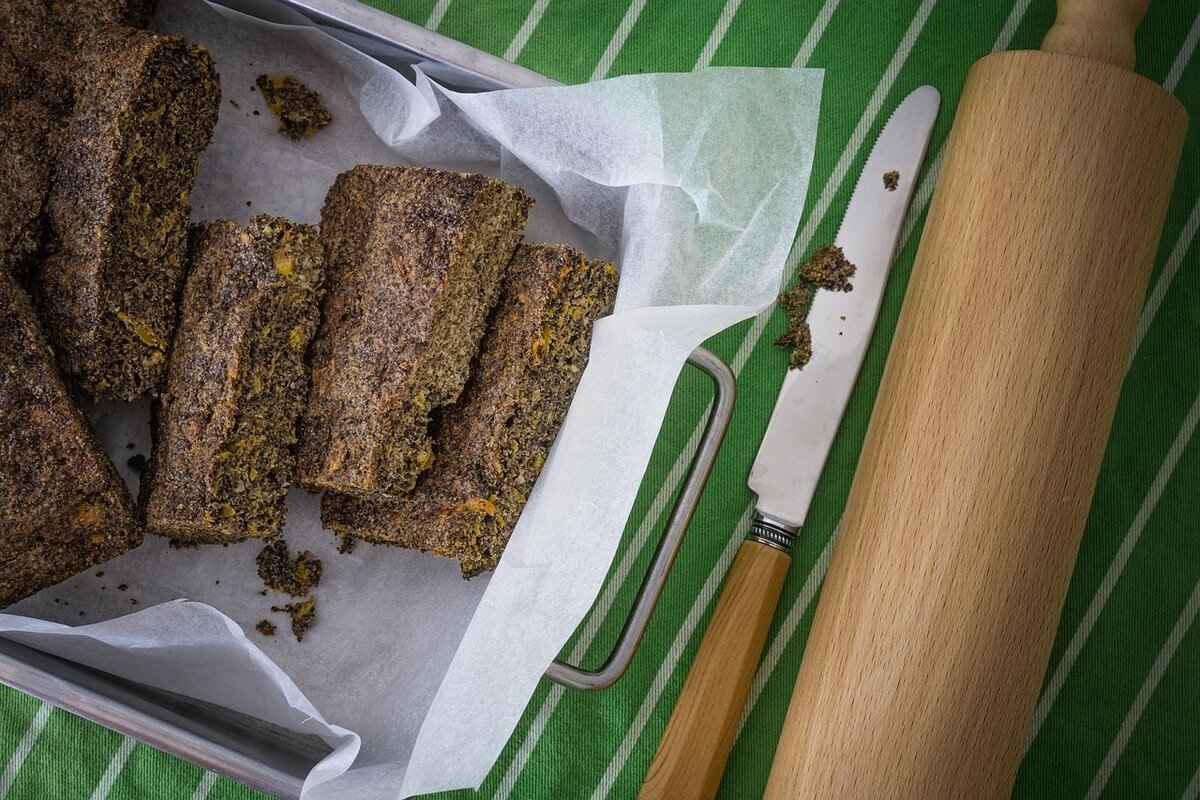
Are There Any Risks Associated with Chia Seeds?
Chia seeds are often celebrated for their numerous health benefits, but it is essential to recognize that they may not be suitable for everyone. In this section, we will explore the potential risks associated with chia seeds, particularly for certain individuals. Understanding these risks can help you make informed dietary choices.
While chia seeds are a fantastic source of nutrients, they can cause digestive issues for some people. The high fiber content in chia seeds can lead to bloating, gas, or discomfort, especially if consumed in large quantities or without adequate hydration. It’s crucial to gradually introduce chia seeds into your diet to allow your digestive system to adjust.
Chia seeds may affect blood sugar levels due to their high fiber content, which can be beneficial for some but problematic for others. If you are on medications for diabetes or blood pressure, it is vital to consult with a healthcare professional before adding chia seeds to your diet. Monitoring your blood sugar levels is important if you include these seeds in your meals.
Certain individuals should exercise caution when consuming chia seeds. Those with allergies to sesame seeds or other seeds may also experience allergic reactions to chia seeds. Additionally, individuals with a history of esophageal issues should be cautious, as chia seeds can expand and form a gel-like substance when soaked in liquid, potentially causing choking hazards.
Pregnant or nursing women should consult their healthcare provider before incorporating chia seeds into their diet. While chia seeds offer numerous health benefits, their high fiber content might lead to digestive discomfort, which can be exacerbated during pregnancy. It is essential to ensure a balanced intake of nutrients during this critical time.
If you decide to include chia seeds in your diet, consider the following tips to minimize potential risks:
- Start Small: Begin with a small serving, such as one teaspoon, and gradually increase to one or two tablespoons as your body adjusts.
- Stay Hydrated: Drink plenty of water when consuming chia seeds to help prevent digestive discomfort.
- Soak Before Eating: Soaking chia seeds in water or another liquid before consumption can help mitigate digestive issues and enhance nutrient absorption.
Be aware of how your body reacts after consuming chia seeds. Signs of intolerance may include:
- Bloating or gas
- Stomach cramps or discomfort
- Allergic reactions, such as itching or swelling
If you experience any of these symptoms, it is advisable to discontinue use and consult a healthcare professional.
In summary, while chia seeds can be a valuable addition to many diets, it is essential to be mindful of potential risks and side effects. By understanding your body’s needs and consulting with a healthcare provider, you can safely enjoy the benefits of chia seeds.
Can Chia Seeds Cause Digestive Issues?
Chia seeds have gained immense popularity as a superfood due to their impressive nutritional profile. However, it’s essential to recognize that, like many foods, they can cause certain side effects for some individuals. One of the most common concerns is digestive discomfort, particularly when chia seeds are consumed without adequate hydration. This section delves into the relationship between chia seeds and digestive issues, emphasizing the importance of proper hydration.
Chia seeds are rich in soluble fiber, which, when combined with water, forms a gel-like substance. This property is beneficial for digestion but can also lead to discomfort if not consumed correctly. When chia seeds are ingested dry, they can absorb water from the digestive tract, potentially leading to symptoms such as bloating, gas, or constipation. Therefore, it’s crucial to ensure that chia seeds are adequately hydrated before consumption.
As a general guideline, it’s recommended to soak chia seeds in water for at least 30 minutes before eating. A typical ratio is 1 part chia seeds to 10 parts water. This allows the seeds to fully expand and absorb the liquid, making them easier to digest. For example, if you use 1 tablespoon of chia seeds, mix it with about 10 tablespoons of water. This ensures that your body can handle the fiber content without causing discomfort.
- Individuals with Sensitive Digestive Systems: People who are prone to gastrointestinal issues may find that chia seeds exacerbate their symptoms.
- Those New to High-Fiber Diets: If your diet is low in fiber, introducing chia seeds suddenly can lead to digestive distress.
- People Not Drinking Enough Water: Insufficient hydration can significantly increase the risk of digestive discomfort when consuming chia seeds.
Recognizing the signs of digestive discomfort is vital for addressing the issue promptly. Common symptoms include:
- Bloating
- Gas
- Abdominal cramps
- Constipation or irregular bowel movements
To enjoy the benefits of chia seeds without the risk of digestive discomfort, consider the following tips:
- Start Slowly: If you’re new to chia seeds, begin with a small amount and gradually increase your intake.
- Stay Hydrated: Drink plenty of water throughout the day, especially when consuming high-fiber foods like chia seeds.
- Incorporate Them into Meals: Add soaked chia seeds to smoothies, yogurt, or oatmeal to enhance digestion.
While chia seeds are generally safe for most people, it’s essential to listen to your body. If you experience persistent digestive issues despite taking precautions, it may be wise to consult a healthcare professional. Additionally, those with specific medical conditions or allergies should approach chia seeds with caution.
In summary, while chia seeds offer numerous health benefits, proper hydration is crucial to avoid digestive discomfort. By following the recommended guidelines for consumption and staying hydrated, you can enjoy this nutrient-rich superfood without adverse effects.
Who Should Avoid Chia Seeds?
Chia seeds have gained immense popularity due to their numerous health benefits, but they may not be suitable for everyone. This section will explore the specific populations who should exercise caution when considering the incorporation of chia seeds into their diets.
People with allergies to seeds or nuts should be particularly cautious. Chia seeds, while generally safe, can trigger allergic reactions in sensitive individuals. Symptoms may include:
- Itching or swelling in the mouth or throat
- Skin rashes or hives
- Digestive issues such as nausea or vomiting
If you have a known allergy to other seeds, it is advisable to consult with a healthcare professional before trying chia seeds.
Those with pre-existing gastrointestinal conditions such as irritable bowel syndrome (IBS) or inflammatory bowel disease (IBD) may need to limit their chia seed intake. The high fiber content in chia seeds can exacerbate symptoms like:
- Bloating
- Gas
- Abdominal pain
It is crucial for individuals with these conditions to consult their healthcare provider for personalized advice.
Chia seeds are known for their omega-3 fatty acids, which can have a natural blood-thinning effect. For those taking anticoagulant medications, such as warfarin, excessive consumption of chia seeds may increase the risk of bleeding. Monitoring your intake and discussing it with your doctor is essential.
While chia seeds can be a nutritious addition to many diets, pregnant and nursing women should approach them with caution. High fiber intake can lead to digestive discomfort, and the potential for allergic reactions should not be overlooked. Consulting a healthcare provider for tailored dietary advice is recommended.
Chia seeds are rich in phosphorus and potassium, which can be concerning for individuals with kidney disease. Excessive intake of these minerals may lead to complications. It is advisable for those with kidney conditions to seek guidance from a healthcare professional regarding chia seed consumption.
While chia seeds offer numerous health benefits, certain populations should be cautious or avoid them altogether. If you fall into any of the above categories, it is best to consult with a healthcare provider before adding chia seeds to your diet. This will help ensure that you make safe and informed dietary choices.
Frequently Asked Questions
- Are chia seeds good for weight loss?
Absolutely! Chia seeds are packed with fiber, which helps you feel full longer and can reduce overall calorie intake. When included in a balanced diet, they can be a fantastic ally in your weight loss journey.
- How should I consume chia seeds for the best results?
You can sprinkle chia seeds on your smoothies, mix them into yogurt, or even use them in baking. They absorb liquid and form a gel-like consistency, making them perfect for puddings or as an egg substitute in vegan recipes!
- What is the recommended daily intake of chia seeds?
Most nutritionists recommend about 1 to 2 tablespoons (15 to 30 grams) of chia seeds per day. This amount is generally safe and allows you to reap their health benefits without overdoing it.
- Can chia seeds cause any side effects?
While chia seeds are generally safe, consuming them without enough water can lead to digestive issues. Always make sure to stay hydrated when adding them to your diet!
- Who should avoid chia seeds?
If you have a history of allergies to similar seeds or certain medical conditions, it’s best to consult your healthcare provider before adding chia seeds to your diet. Better safe than sorry!














